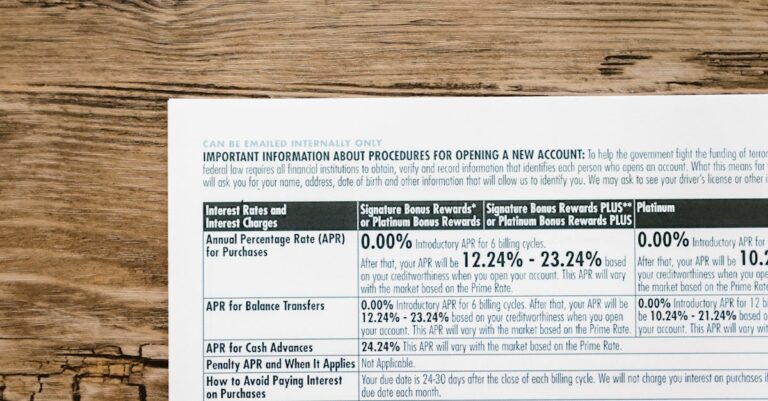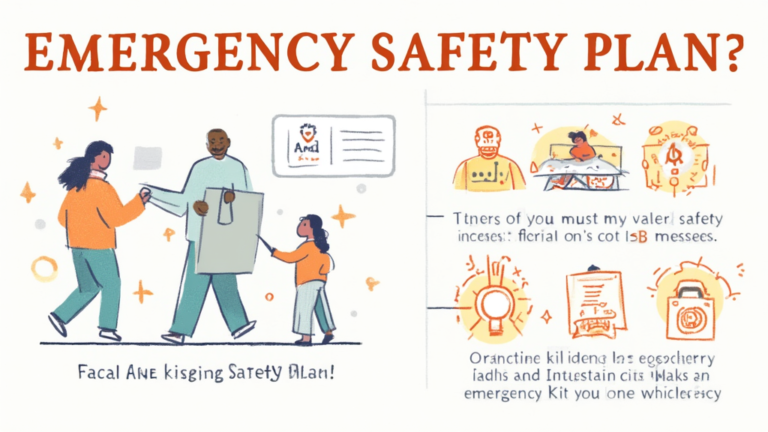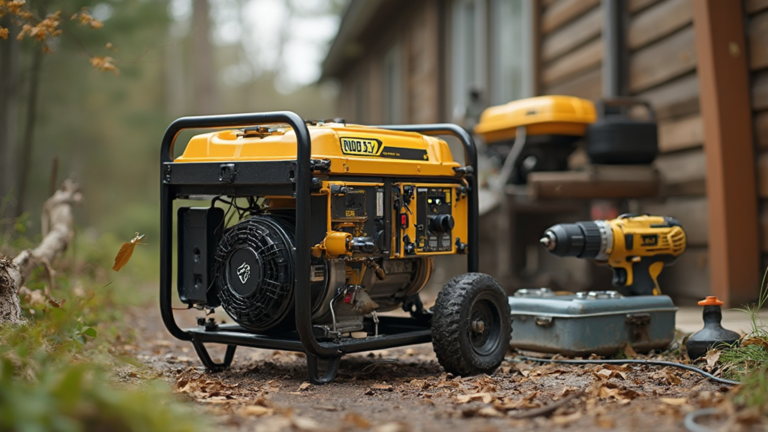Electrical Safety Tips for a Safer Home Environment
Electrical safety tips are crucial for every homeowner aiming to create a secure living environment. In our homes, the potential dangers within electrical systems often go unnoticed, yet they pose serious risks including shocks and fires. By implementing effective safety measures, homeowners can prevent electrical hazards and ensure both their property and loved ones remain safe. This blog provides essential insights into home electrical safety, from childproofing outlets to GFCI installation tips. Embracing proactive electrical system maintenance is key to safeguarding your home against unforeseen dangers.
When it comes to ensuring safety in our living spaces, understanding the intricacies of household electricity is paramount. The significance of adhering to electrical safety protocols cannot be overstated, as neglecting them can lead to perilous situations. Awareness of how to effectively manage electrical systems, such as conducting regular inspections and utilizing child safety measures, plays a pivotal role in preventing accidents. Additionally, implementing practices like GFCI installations can enhance protection against electrical shocks. In this guide, we will explore various strategies for maintaining electrical safety and promoting a hazard-free home.
Understanding Electrical Safety Fundamentals
Electrical safety is a vital aspect of home maintenance that every homeowner should prioritize. Understanding the basics of your home’s electrical system is the first step toward ensuring safety. Familiarize yourself with the layout of your electrical panel, commonly referred to as the breaker box. Knowing how to locate it and identifying which breaker controls which area of your home can be crucial in an emergency situation. Being able to quickly turn off power can prevent accidents, particularly during electrical repairs or when appliances malfunction.
In addition to knowing your breaker box, it’s essential to regularly monitor your home’s electrical system for potential hazards. This includes checking for outdated wiring, overloaded circuits, and any signs of wear and tear on electrical components. Regular inspections can help you identify issues before they escalate, allowing for timely repairs and upgrades. By being proactive about your home’s electrical safety, you not only protect your property but also ensure the safety of everyone living in your home.
Essential Electrical Safety Tips
Implementing a set of electrical safety tips can significantly reduce the risk of electrical hazards in your home. One of the most critical tips is to inspect electrical cords and outlets regularly for any signs of damage. Frayed cords or cracked outlets can expose wires, leading to shock or fire hazards. Additionally, avoid overloading outlets with multiple devices or power strips, as this can cause overheating and potential fires. Taking the time to assess these components can safeguard your home from dangerous situations.
Another vital safety measure is childproofing electrical outlets if you have young children in your home. Utilizing safety caps or tamper-resistant outlets can help prevent curious little fingers from inserting objects into outlets, which can lead to severe injuries. Educating your children on the dangers of electricity and establishing rules about electrical devices can further enhance safety in your household. Implementing these electrical safety tips will create a safer environment for everyone.
The Importance of GFCI Installation
Ground Fault Circuit Interrupters (GFCIs) play a crucial role in home electrical safety, particularly in areas where electricity and water may come into contact. Installing GFCIs in locations like bathrooms, kitchens, and outdoor spaces can significantly reduce the risk of electric shock. These devices work by shutting off the electrical circuit if they detect an imbalance in the current, which can occur if electricity flows through water or a person. Therefore, understanding the importance of GFCIs and ensuring they are correctly installed can be a lifesaver.
In addition to installation, it’s essential to test GFCIs monthly to ensure they are functioning correctly. This simple maintenance task can be easily overlooked but is critical for ongoing safety. Homeowners should also replace any GFCI that trips frequently, as it may indicate an underlying issue with the electrical system. By investing in GFCIs and maintaining them properly, you create a safer living space, particularly in high-risk areas of the home.
Conducting Regular Electrical Inspections
Scheduling regular electrical inspections is a proactive approach to home safety that cannot be overstated. Having a licensed electrician conduct thorough inspections of your electrical system can help identify potential hazards such as outdated wiring or overloaded circuits. These inspections can pinpoint issues before they cause significant problems, ensuring that your home remains safe and compliant with electrical codes. Regular check-ups can also extend the life of your electrical system, making it a wise investment for homeowners.
In addition to identifying hazards, a qualified electrician can provide recommendations for necessary upgrades. If your home relies heavily on extension cords due to a lack of outlets, or if you find your circuit breakers tripping often, it may be time to consider an electrical system upgrade. Upgrading your electrical system not only enhances safety but also improves functionality, allowing you to accommodate modern appliances and devices without overloading your circuits.
Educating Your Household on Electrical Safety
Proper education about electrical safety is essential for every household member, from children to adults. Teaching children the basics of electrical safety can prevent accidents before they happen. This includes explaining the dangers of electrical devices, the importance of keeping water away from electrical outlets, and the need to report any damaged cords or equipment immediately. By instilling these practices early on, you create a culture of safety that prioritizes caution around electricity.
For adults, regular discussions about electrical safety practices can reinforce the importance of vigilance. Encouraging all household members to participate in safety checks, such as inspecting electrical cords and outlets, can foster a sense of shared responsibility. Additionally, keeping everyone informed about emergency procedures in case of an electrical incident can ensure that your household is prepared to respond effectively. Educating your household on electrical safety is a critical step towards minimizing risks and maximizing safety.
Using Appliances Safely and Wisely
Using household appliances safely is another key aspect of electrical safety. Always adhere to the manufacturer’s instructions when operating devices, as these guidelines are designed to minimize risks. For instance, appliances such as washing machines and dishwashers should never be left running unattended. Not only does this practice prevent potential electrical mishaps, but it also contributes to energy conservation. Additionally, unplugging small appliances when they are not in use can help reduce energy consumption and the risk of electrical fires.
Moreover, it’s important to be aware of the power requirements of your appliances. Using appliances that exceed the outlet’s capacity can result in overheating and fires. Consider the load each outlet can safely handle, and avoid daisy-chaining multiple devices through power strips. Understanding and respecting the power requirements of your household appliances will greatly enhance your electrical safety.
Best Practices for Holiday Electrical Safety
Holiday decorations often increase the electrical demands in your home, making holiday electrical safety essential. When using lights and decorations, it’s advisable to opt for LED lights, which consume less power and produce less heat than traditional incandescent bulbs. Before hanging any lights, inspect them for frayed wires or broken sockets, as these damages can create serious hazards. Additionally, always turn off holiday lights before leaving the house or going to bed to prevent overheating and potential fires.
It’s also crucial to avoid overloading circuits with holiday decorations. Plan your light display to ensure that you do not exceed the electrical capacity of your outlets. Use extension cords wisely, ensuring they are rated for outdoor use if necessary, and avoid running them through doorways or under carpets where they may be damaged. By following these best practices for holiday electrical safety, you can enjoy a festive atmosphere without compromising your home’s safety.
Investing in Quality Surge Protectors
Power surges can be unpredictable and damaging to your electronic devices, making it essential to invest in quality surge protectors. These devices help safeguard sensitive electronics from voltage spikes caused by lightning strikes or power outages. When selecting surge protectors, ensure they meet the necessary specifications for your devices and offer adequate protection against surges. A good surge protector will have a clear indication of its protection capabilities and should be used for all valuable electronics.
While surge protectors are an excellent defense against power surges, homeowners must remember that they are not a permanent solution. Regularly check your surge protectors and replace them if they show signs of wear or have been compromised by a power surge. By taking these precautions, you can protect your devices and reduce the risk of damage caused by unexpected electrical fluctuations.
Enhancing Outdoor Electrical Safety
Outdoor electrical safety is just as crucial as indoor safety, especially when using power tools, lighting, or entertainment systems outside. Always use outdoor-rated extension cords and ensure that outdoor outlets are equipped with weatherproof covers to protect them from moisture. Additionally, be cautious of overhead power lines when using ladders or conducting yard work, as coming into contact with these lines can result in severe injuries or fatalities. Awareness and proper equipment are key to maintaining safety outdoors.
Furthermore, when setting up outdoor lighting or decorations, ensure that all connections are secure and that wiring is protected from the elements. Avoid using indoor lighting fixtures outside, as they are not designed to withstand weather conditions and can pose a serious risk. By following these guidelines for outdoor electrical safety, you can enjoy your outdoor spaces while minimizing electrical hazards.
Frequently Asked Questions
What are some essential home electrical safety tips to prevent electrical hazards?
To prevent electrical hazards in your home, start by familiarizing yourself with your electrical system, ensuring all outlets are in good condition, and regularly inspecting cords for damage. Always use appliances as directed, avoid overloading outlets, and keep water away from electrical devices. Additionally, consider childproofing electrical outlets and installing GFCIs in moisture-prone areas.
How can I effectively childproof electrical outlets in my home?
Childproofing electrical outlets is crucial for safety. Use safety caps or tamper-resistant receptacles to cover unused outlets. Ensure that all accessible outlets are childproofed to prevent curious children from inserting objects. Educate your children about the dangers of electricity and the importance of not playing near electrical outlets.
What are GFCI installation tips for enhancing electrical safety in wet areas?
To enhance electrical safety in wet areas, install Ground Fault Circuit Interrupters (GFCIs) in bathrooms, kitchens, and outdoor outlets. These devices cut off power when they detect an imbalance in electrical current, preventing electric shock. Ensure GFCIs are tested monthly to confirm they are functioning correctly.
Why is regular electrical system maintenance important for home safety?
Regular electrical system maintenance is vital for home safety as it helps identify potential hazards such as outdated wiring, overloaded circuits, and faulty equipment. Scheduling inspections with a licensed electrician can prevent electrical fires, shocks, and other dangerous incidents, ensuring your home remains a safe environment.
What are the best practices for using extension cords safely?
When using extension cords, ensure they are only temporary solutions and not permanent fixtures. Choose cords rated for the load you require, avoid running them across doorways or under carpets to prevent tripping hazards, and never daisy-chain multiple extension cords together. Always unplug them when not in use.
How can I keep water away from electrical devices to ensure safety?
To ensure safety, keep all electrical devices away from water sources. Avoid using appliances near pools, bathtubs, or wet areas and always ensure your hands are dry before handling any electrical devices. Install GFCIs in areas where water and electricity may come into contact.
What should I consider when upgrading an old electrical system in my home?
When upgrading an old electrical system, consider the current electrical demands of your home. If you frequently experience tripped circuit breakers or lack sufficient outlets, it may be time to upgrade. Consult a licensed electrician to evaluate your system and recommend necessary upgrades to improve both functionality and safety.
How can I practice electrical safety during the holidays?
During the holidays, practice electrical safety by using LED lights to minimize power consumption and heat output. Inspect all holiday decorations for damage before use, avoid overloading circuits, and always turn off decorations before going to bed or leaving the house to prevent electrical fires.
What are the key takeaways for maintaining electrical safety in my home?
Key takeaways for maintaining electrical safety include regularly inspecting your electrical system, using appliances according to manufacturer instructions, childproofing outlets, installing GFCIs, and being cautious with outdoor electrical devices. Stay educated about potential hazards and ensure all household members understand basic electrical safety guidelines.
How can I educate my household about electrical safety tips?
Educate your household about electrical safety by discussing the potential dangers of misusing electrical devices and the importance of following safety guidelines. Conduct safety drills, share resources and tips, and encourage open communication about any electrical concerns or questions. This knowledge empowers everyone to contribute to a safer living environment.
| Key Point | Description |
|---|---|
| Understand Your Home’s Electrical System | Familiarize yourself with the electrical panel and label each circuit for quick access during emergencies. |
| Regularly Inspect Electrical Cords and Outlets | Check for fraying or damage to cords; avoid overloading outlets to prevent overheating. |
| Use Appliances Wisely | Follow manufacturer instructions and unplug small devices when not in use to save energy. |
| Keep Water Away From Electrical Devices | Ensure devices are dry and keep them away from wet areas to prevent shocks. |
| Childproof Electrical Outlets | Use safety caps on outlets to prevent children from inserting objects into them. |
| Install Ground Fault Circuit Interrupters (GFCIs) | Use GFCIs in moisture-prone areas to prevent electric shocks. |
| Schedule Regular Electrical Inspections | Hire a licensed electrician to inspect and fix potential hazards in your electrical system. |
| Be Prepared for Electrical Emergencies | Have a fire extinguisher for electrical fires and know how to use it. |
| Educate Your Household | Teach everyone about electrical safety and the risks of mishandling electrical devices. |
| Respect the Power of Electricity | Avoid DIY electrical repairs unless qualified; always prioritize safety. |
| Use Extension Cords Wisely | Limit use of extension cords; avoid running them across doorways or under carpets. |
| Practice Caution with Holiday Decorations | Inspect lights for damage and use LED lights to reduce power consumption. |
| Know When to Upgrade | Consider upgrading your electrical system if circuits frequently trip or if you lack outlets. |
| Invest in Surge Protectors | Use quality surge protectors to safeguard electronics from power surges. |
| Pay Attention to Outdoor Safety | Use outdoor-rated cords and be cautious of power lines when working outside. |
Summary
Electrical safety tips are essential for every homeowner to ensure a secure living environment. By understanding your home’s electrical system, regularly inspecting cords and outlets, and following safety protocols, you can significantly reduce the risk of electrical hazards. Education and preparedness are vital; teaching household members about potential dangers and knowing how to respond in emergencies can save lives. Prioritizing electrical safety not only protects your property but also the wellbeing of everyone in your home.







